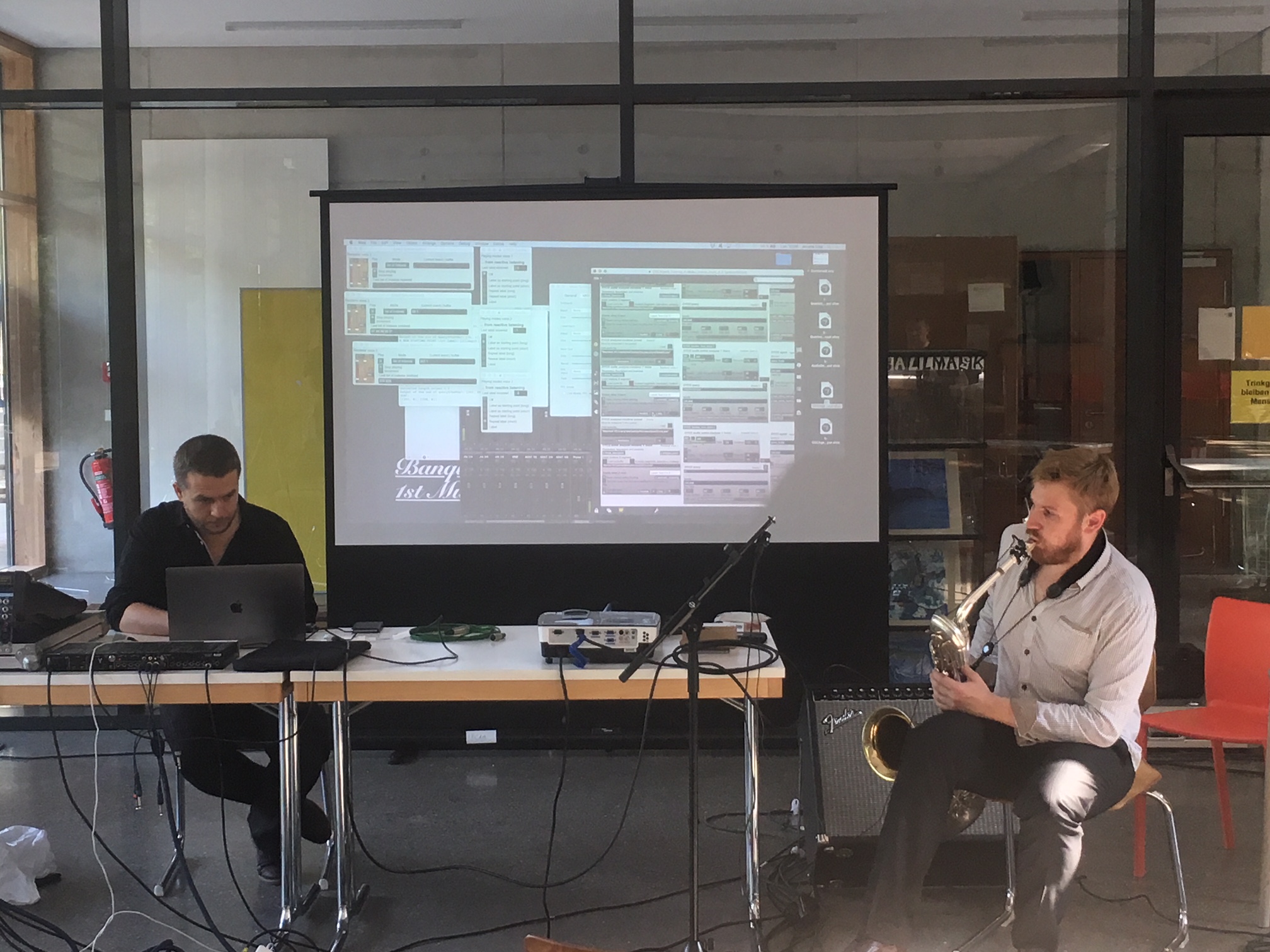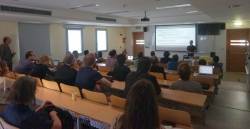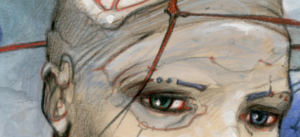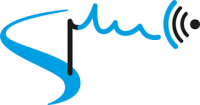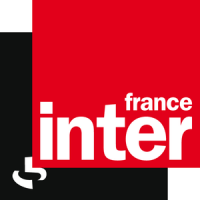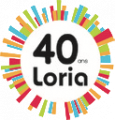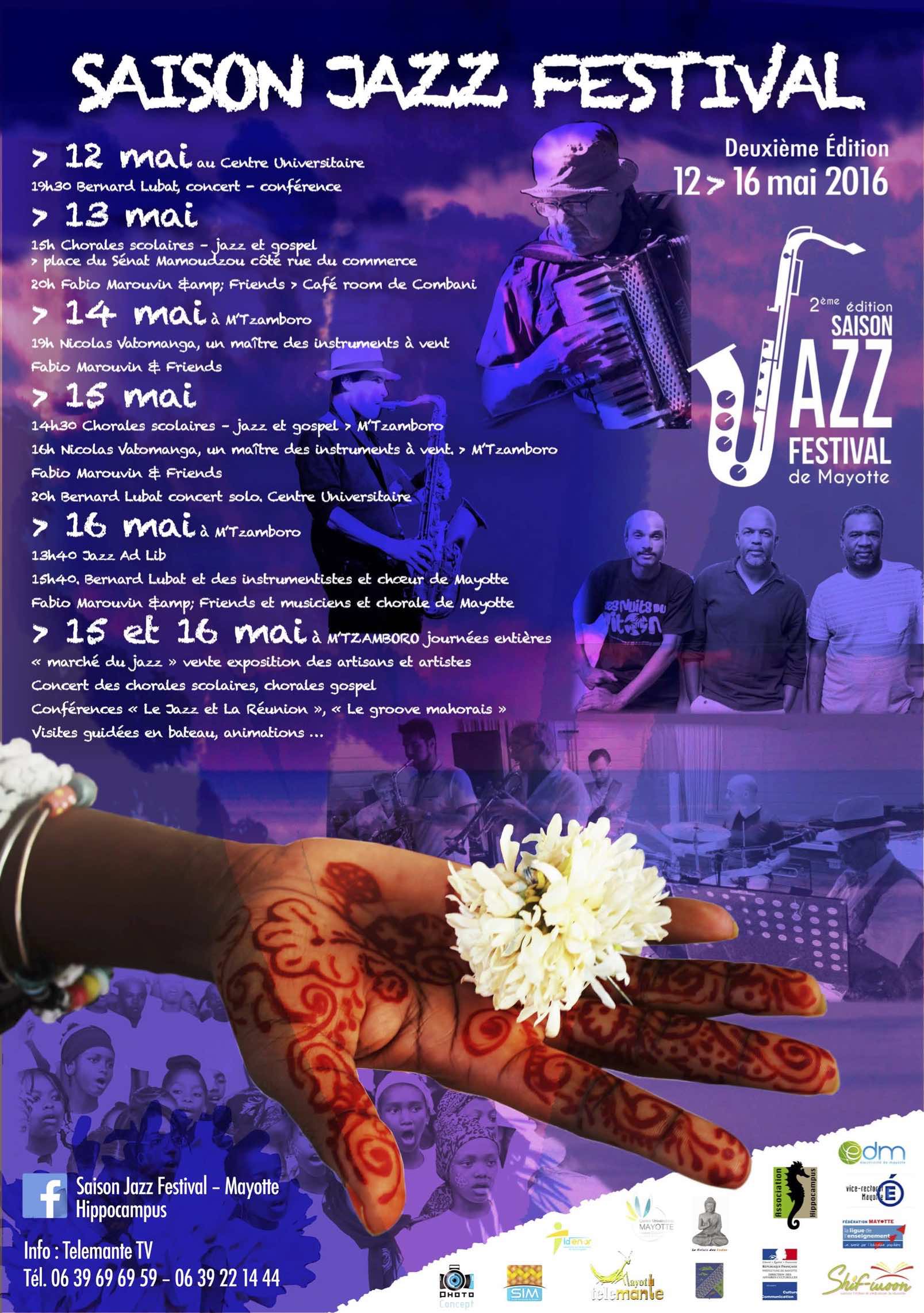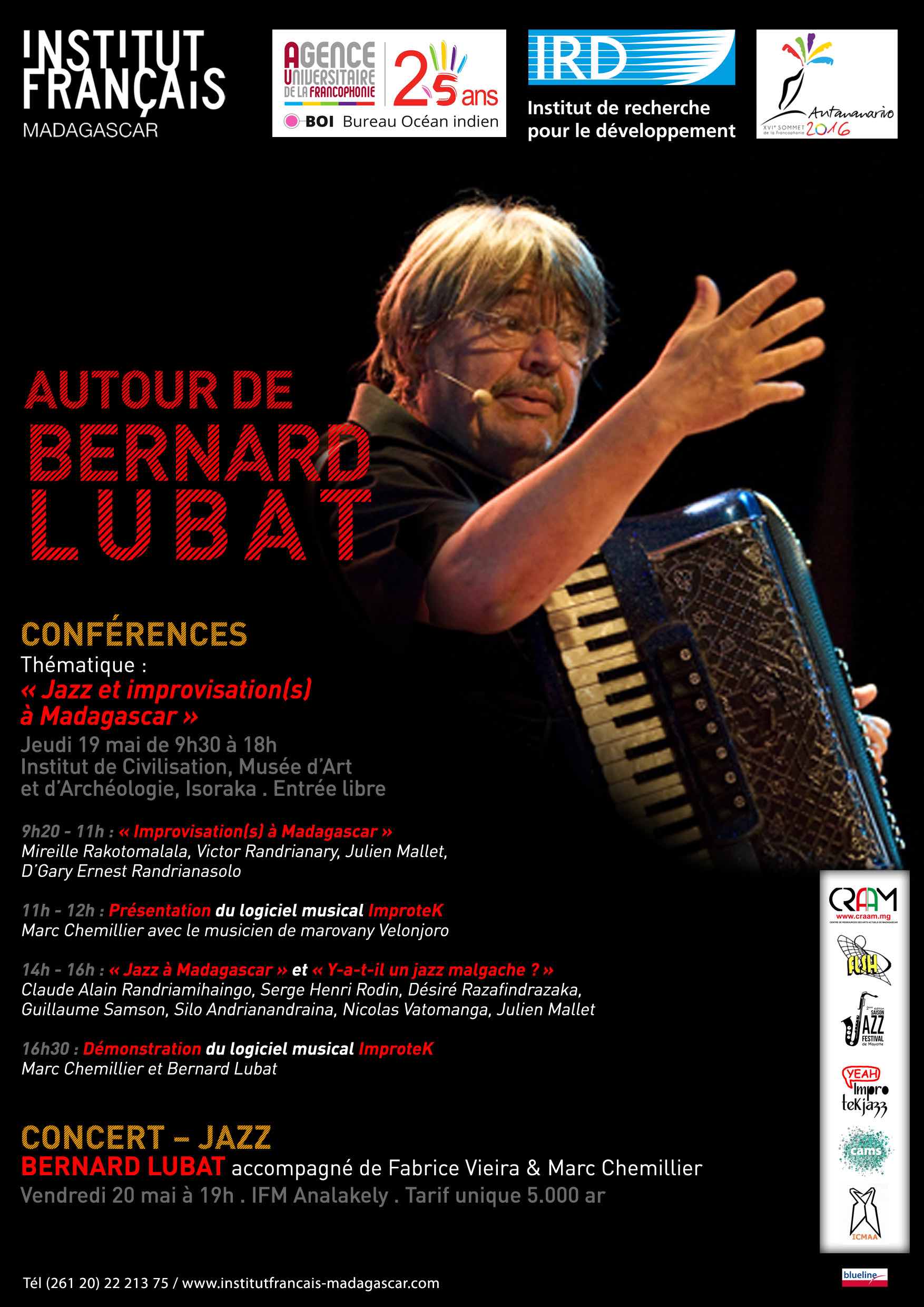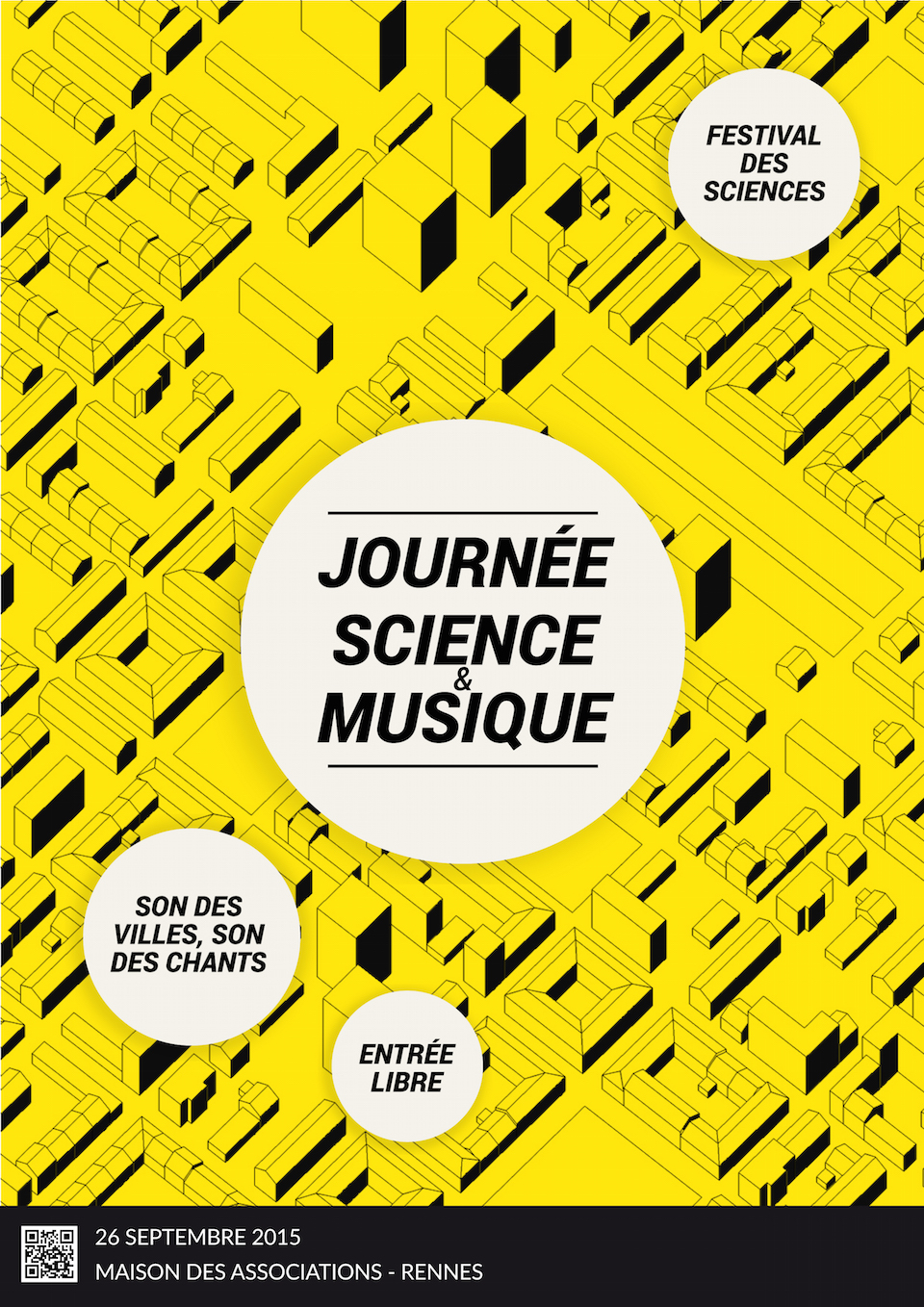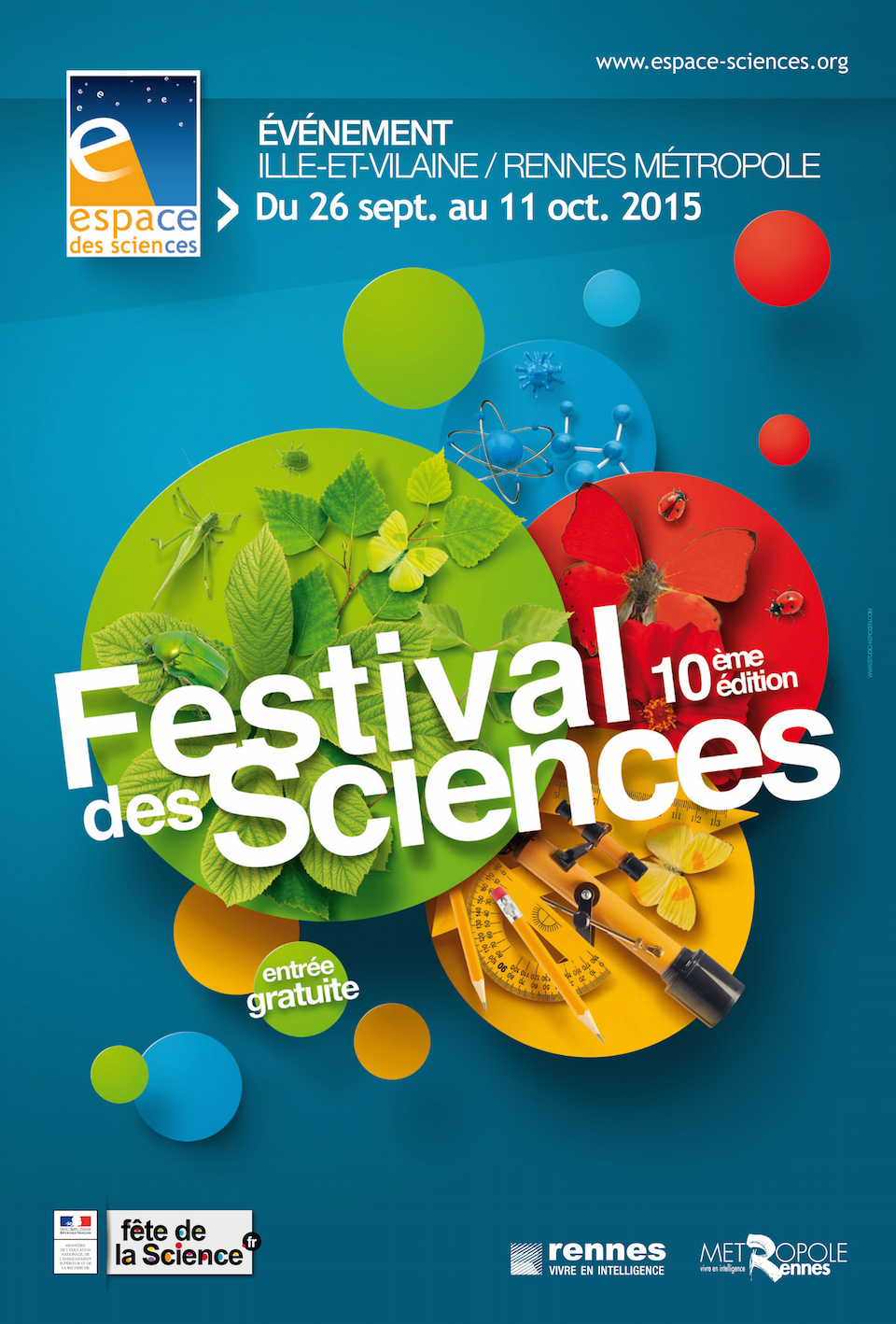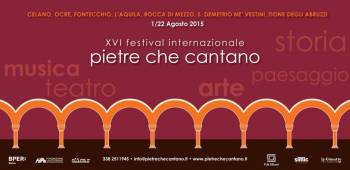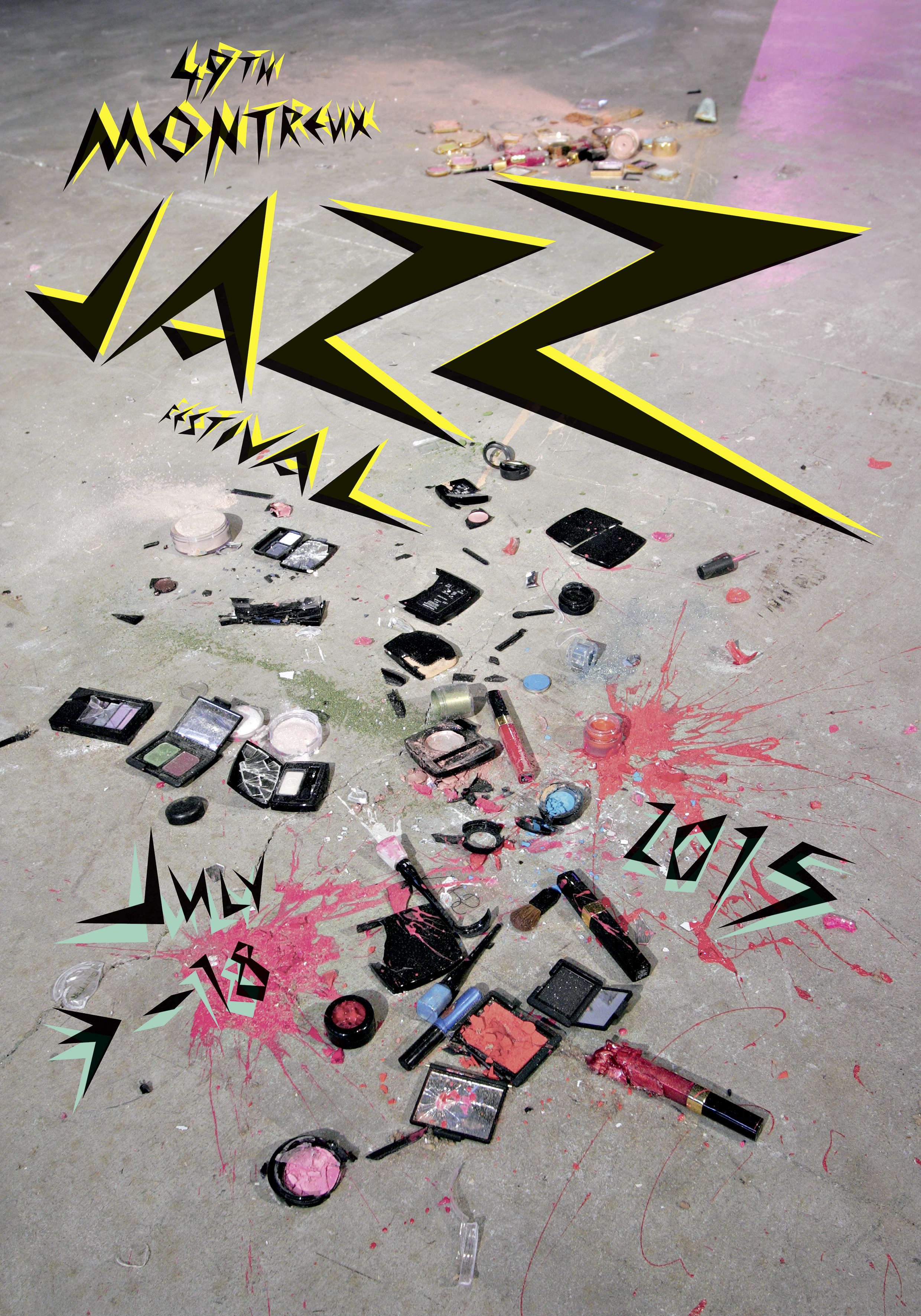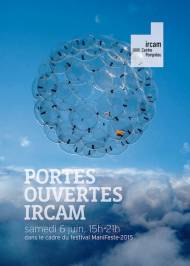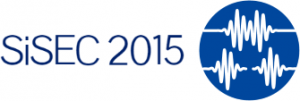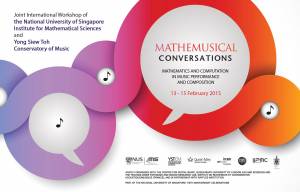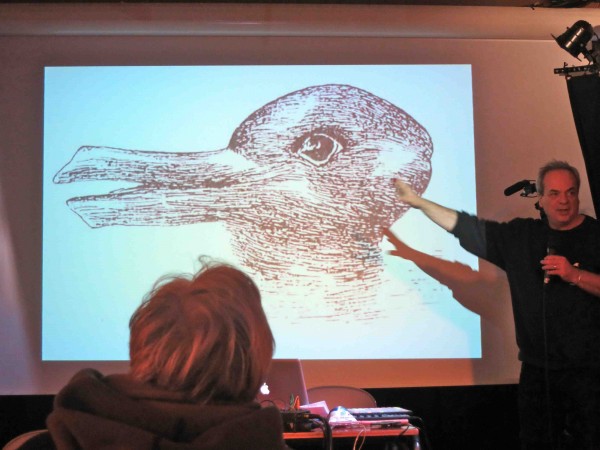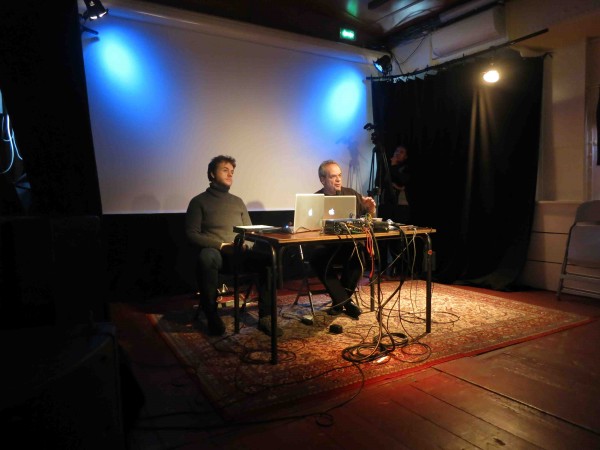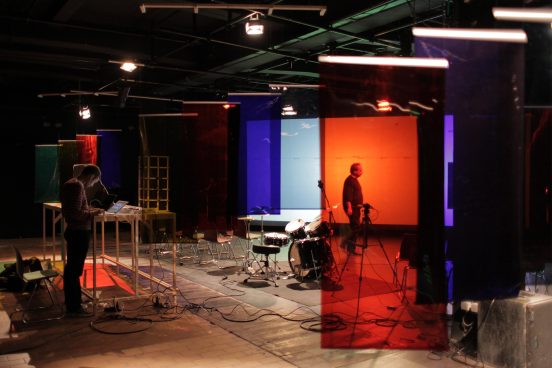Events
Forum Vertigo, Centre Pompidou
Débat « Code et IA : de nouveaux maîtres pour la création ? », invited talk by Gerard Assayag, 13 juin 2018.
Invited Workshop, Athens University,
Music Dpt, 28 – 30 june, 2018. « DYC2 tools for Jazz students », Gérard Assayag and Jérôme Nika.
Ecole des mines, Paris.
« Improvisation with Creative Agents », invited talk by Gerard Assayag, September 20th, 2018
Geidai University of the arts, Tokyo
« Symbolic Interaction with Creative Agents », invited talk by Gerard Assayag,March 29th, 2018
Todai Tokyo University
« Symbolic Interaction with Creative Agents », invited talk by Gerard Assayag, April 25th 2018
Artefacts sonores au CGP
Rencontre Artefacts sonores. Cycle: Le son des autres, au Centre Pompidou
Avec: Gérard Assayag ; Marc Chemillier ; Bernard Lubat
Organisateur: Sébastien Gaudelus
Animateur / modérateur: Philippe Le Guern
18/06/2018
"Lullaby experience", Pascal Dusapin
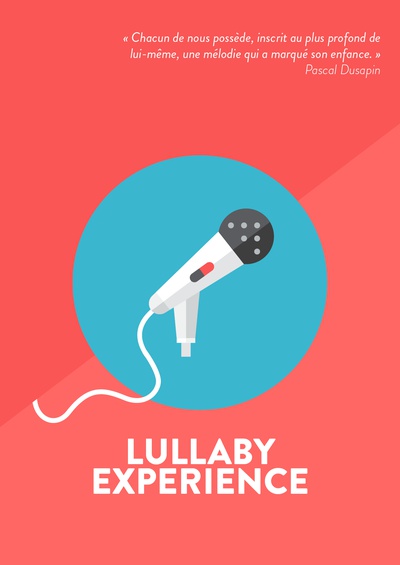
The DYCI2 technology will be the core of composer's Pascal Dusapin next evolutive piece "Lullaby experience".
World Premiere: February 2 &3, 2019, Francfort, festival Frankfurter Positionen
French Premiere: June 2019, Paris, IRCAM ManiFeste festival
An IRCAM-Centre Pompidou, Ensemble Modern coproduction as a part of the DYCI2 project supported by the French National Research Agency (ANR) and coordinated by IRCAM.
Pascal Dusapin, conception and musical creation
Claus Guth, staging
Etienne Pluss, scenography
Thierry Coduys, realisation electroacoustic design Ircam
Jérôme Nika, scientific advisor (Université de La Rochelle / Music Representations Team, Ircam Lab)
Ensemble Modern
Buzzing Light, development mobile application
https://www.ircam.fr/article/detail/lullaby-experience/
Be a part of the collective experience Lullaby, imagined by the composer Pascal Dusapin: share your childhood melodies online. It’s the memory of a nursery rhyme, even changed with the passing of time, that we invite you to sing, to whisper… Lullaby is a participative project, open to all—children and adults alike—worldwide. The collected recordings will provide the sonic material used by the composer for the musical creation of Lullaby. Transformed and assembled, they form a singing map of the world, moving through sonic space like flocks of birds, creating the sound portrait of each city where the work is shown.
Interview "AI and music" in "L'esprit sorcier"
Jérôme Nika and Philippe Esling were interviewed by L'esprit sorcier ("C'est pas sorcier 2.0"), a French programme aimed at the general public, for their issue about artificial intelligence and music.
2018 edition of the Darmstadt Summer Course
http://internationales-musikinstitut.de/de/ferienkurse/kurse/music-computing/
Invited concert and performance by Jérôme Nika and Rémi Fox at Darmstadt Summer Course (Germany) on July 27 2018 focusing on human-computer improvisation and the notion of autonomous agent in contexts of co-improvisation. Featuring an interactive demonstration of the DICY2 library.
Science Festival of Université de Lorraine 2018

On the occasion of the science festival of Université de Lorraine on October 12 2018 in Nancy, Emmanuel Vincent hold a demo stand for audio source separation.
The demo highlighted in particular deep neural network based separation algorithms applied to music.
Workshop: Music Composition and Creative Interaction with Machine Learning
http://repmus.ircam.fr/paco/workshop-smc
SMC'18
Cyprus University of Technology, Limassol
July 6th, 2018 – 17h-19h
While making machines capable of composing using machine learning and artificial intelligence has been widely explored in computer music research, these techniques are still seldom exploited by musicians themselves as an actual tool for composition. This workshop presented current works and perspectives in this direction, considering ML and AI-inspired techniques applied for computer-aided composition and musical human-machine interaction.
Presenters and topics:
- Diemo Schwarz (IRCAM): Learning gestures from audio descriptors: composition and interaction
- Jerome Nika (Université de La Rochelle / IRCAM): Symbolic human-machine musical interaction
- Tetsuro Kitahara (Nihon University, Japan): An improvisation support system with melody generation based on user-drawn melodic outlines
- Jean Bresson (IRCAM): Machine learning in the compositional workflow (applications in OpenMusic)
- Anders Vinjar (independent composer, Norway): An exploration AI techniques for computer-aided composition
- Hugo Scurto (IRCAM): Creating Human-AI Collaboration in Music Applications.
- Philippe Pasquier (Simon Fraser University, Canada): Computer assisted composition and sound design at the Metacreation Lab
Hors-série Libération : VOYAGE AU CŒUR DE L'IA
«La créativité devient un objet d’étude en soi»
Interview de Gérard Assayag Par Mathieu Vidard, (France Inter)
4 janvier 2018
Mooc Digital Media | Recherche musicale & intelligence digitale
« Recherche musicale et intelligence digitale »,
cycle de conférences invitées en ligne de Gérard Assayag
Decembre 2017
Article dans Le Monde
Effet de mode ou révolution ? Comment l’intelligence artificielle s’invite dans la musique
interview de Gérard Assayag
Février 2018
Invited Talk at University of Edinburgh

Seminar at the Reid School of Music (30/04/2018), University of Edinburgh, College of Art, United Kingdom
Invited Talk by Ken Déguernel (Inria Nancy - Ircam / STMS): "Learning of Musical Structures for Machine Improvisation Systems".
Welcome event new CNRS-INS2I researchers 2018

Presentation by Jérôme Nika "Generative processes for human-computer music co-improvisation" at the welcome event for the new CNRS-INS2I researchers 2018, Ircam, March 19 2018.
IEEE International Conference on Acoustics, Speech, and Signal Processing 2018

IEEE International Conference on Acoustics, Speech, and Signal Processing (ICASSP), Calgary, Canada, 2018
Paper by Diego Di Carlo (Inria Nancy), Antoine Liutkus (Inria / LIRMM Montpellier) and Ken Déguernel (Inria Nancy - Ircam / STMS).
"Interference reduction of full-length live recordings"
Invited Talk at Pompeu Fabra University
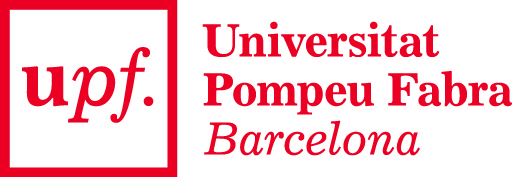
Seminar at Pompeu Fabra University (08/02/2018), Barcelona, Spain.
Invited Talk by Emmanuel Vincent (Inria Nancy): "Multidimensional and multi-level learning of music structure for machine improvisation in the DYCI2 project".
PhD defense, Ken Déguernel, 2018
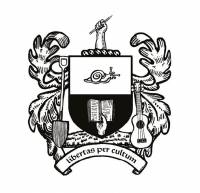
Apprentissage de structures musicales en contexte d'improvisation
Direction: Emmanuel Vincent (Inria), Gérard Assayag (Ircam / STMS).
Defense: March 06, 2018.
Jury:
Prof. Elaine Chew (reviewer) - Queen Mary University of London
Prof. Maxime Crochemore (reviewer) - King's College London
Dr. Florence Levé - Université de Picardie
Prof. Kamel Smaïli - Université de Lorraine
Dr. Emmanuel Vincent - Inria
Dr. Gérard Assayag - Ircam
Workshop Improtech Paris-Philly 2017
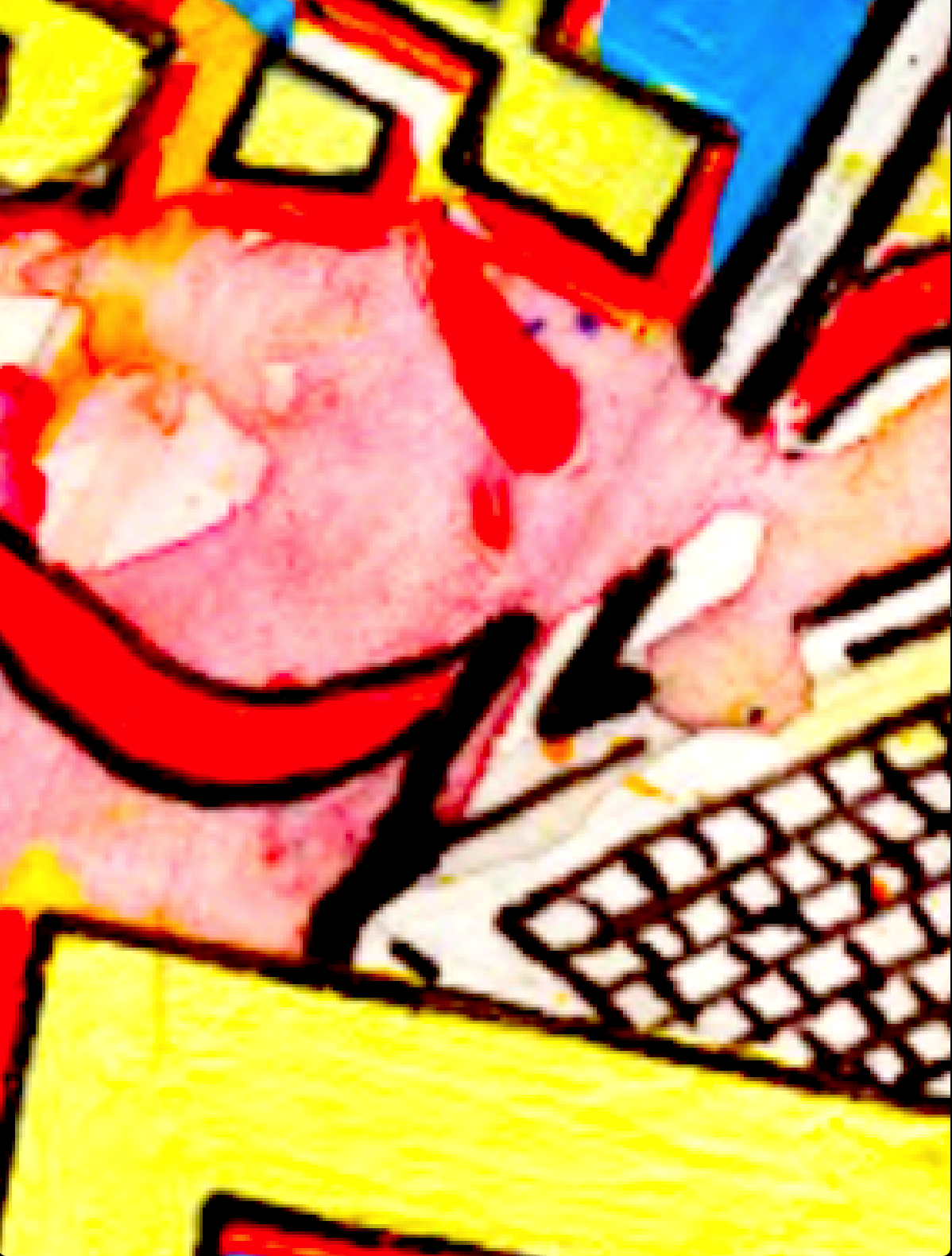
"Improtech gathers scholars, technologists, musicians, makers, around the idea of musical improvisation with digital intelligence (IDI), taking notice of the emergence and development of this new creative field. ikPP creates a link between the european and american research and creation scenes through the symbolic matching of two of their more eminent emblems, Paris and Philadelphia, just as it did a few years ago with Paris and New York."
The members of DYCI2 presented their work with presentations, demos and concerts, during this prestigious event.
Presentations:
"The Djazz project: Jazz machines and Anthropology" - Marc Chemillier (EHESS)
"Merging free, reactive, and scenario-based features in human-computer co-improvisation" - Jérôme Nika (Ircam / STMS)
"Multi-dimensional and multi-scale learning of music structure for machine improvisation" - Ken Déguernel (Inria Nancy - Ircam / STMS)
Performances:
Bernard Lubat + Marc Chemillier & Gérard Assayag (piano / voice, OMax/ImproteK agents)
Rémi Fox, Georges Block, Jérôme Nika (Saxophone, ImproteK system)
Charles Kely Zana-Rotsy, Marc Chemillier (guitar, djazz system)
Rémi Fox, Jérôme Nika (Saxophone, DYCI2lib)
International Computer Music Conference 2017

43rd International Computer Music Conference (ICMC), Shanghai, China, 2017
Paper by Jérôme Nika (Ircam / STMS), Ken Déguernel (Inria Nancy - Ircam / STMS), Axel Chemla-Romeu-Santos (Ircam / STMS - University of Milan), Emmanuel Vincent (Inria Nancy) and Gérard Assayag (Ircam / STMS).
"DYCI2 agents: merging the 'free', 'reactive', and 'scenario-based' music generation paradigms"
Science Festival of Université de Lorraine 2017

On the occasion of the science festival of Université de Lorraine on October 13 2017 in Nancy, Emmanuel Vincent hold a demo stand for audio source separation.
The demo highlighted in particular deep neural network based separation algorithms applied to music.
Sound and Music Computing Conference 2017

14th Sound and Music Computing Conference (SMC), Espoo, Finland, 2017
Paper by Ken Déguernel (Inria Nancy - Ircam / STMS), Jérôme Nika (Ircam / STMS), Emmanuel Vincent (Inria Nancy) and Gérard Assayag (Ircam / STMS).
"Generating Equivalent Chord Progressions to Enrich Guided Improvisation : Application to Rhythm Changes "
Seminar at Queen Mary University of London

Seminar at the Center for Digital Music (28/06/2017), Queen Mary University of London, United Kingdom
Invited Talk by Ken Déguernel (Inria Nancy - Ircam / STMS) titled : "Learning of Musical Structures in the Context of Improvisation"
Event website
AES International Conference on Semantic Audio 2017
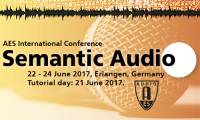
AES International Conference on Semantic Audio, Erlangen, Germany, 2017
Paper by Diego Di Carlo (Inria Nancy), Ken Déguernel (Inria Nancy, Ircam / STMS), and Antoine Liutkus (Inria Nancy).
"Gaussian framework for interference reduction in live recordings"
Ministry of Higher Education, Research and Innovation - New Year Greetings
![]()
Some results of the DYCI2 project (ImproteK) were chosen and presented by M. Thierry Mandon, Secretary of State for Higher Education and Research, during his New Year greetings on January 31 2017 to French Research at Quai Branly Museum.
Forum Mathématiques Vivantes 2017
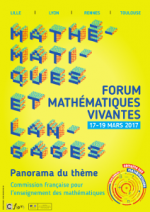 Presentation of the event
Presentation of the event
The general public national event "Forum Mathématiques Vivantes" (living mathematics forum), organised by the French Commission on Mathematical Instruction is taking place from the 17th to the 19th of March 2017 in Lille, Lyon, Rennes and Toulouse.
The theme for this year is Mathematics and Languages.
On this occasion Ken Déguernel, Nathan Libermann and Emmanuel Vincent wrote a popular science article about the links between mathematics, languages and music. This article is included in a booklet distributed during the event.
Read the article (in French)
Presentation of mid-term achievements - National Agency for Research

The members of the project presented the mid-term achievements and perspectives of DYCI2 to the French National Agency for Research (January 10, 2017).
Journées des Jeunes Chercheurs en Acoustique, Audition et Signal 2016
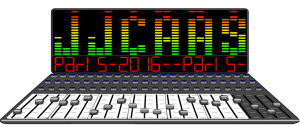
Poster presented by Ken Déguernel (Inria Nancy - Ircam / STMS) on multidimensional musical improvisation in the OMax paradigm.
Ken Déguernel was awarded a Best poster award for his presentation.
(other awardees : Charlotte Desvages, University of Edinburgh & Vincent Lostanlen, ENS).
Sound and Music Computing Conference 2016
13th Sound and Music Computing Conference (SMC), Hamburg, Germany, 2016
Paper by Ken Déguernel (Inria Nancy - Ircam / STMS), Emmanuel Vincent (Inria Nancy) and Gérard Assayag (Ircam / STMS).
"Using Multidimensional Sequences for Improvisation in the OMax Paradigm"
France Inter : Radio program "Chercheurs d'avenir", 2016
Radio Program "Chercheurs d'avenir : l'avenir de la recherche en informatique", presented by Mathieu Vidard, first broadcasted on France Inter, July 10, 2016
Invited speakers : Gérard Berry, Stéphanie Delaune, and Jérôme Nika (Ircam / STMS).
Interviews, discussion, and broadcasting of a co-improvisation Rémi Fox (saxophone) / ImproteK.
Listen to the podcast
Concert "Secret Heroes" - Grande Salle, Centre Pompidou, 2016
Concert "Secret Heroes", Opening of the "Beat Generation" exibit at the Centre Pompidou Grande Salle, Centre Pompidou, Paris, June 22, 2016

Concert using ImproteK and Somax:
Benoît Delbecq (Piano, Drum'n Bass Station),
Doctor Bone a.k.a. Ashley Slater (Voice, Turntables, Sampler, Trombone),
Jozef Dumoulin (Fender Rhodes, Electronics),
Gilbert Nouno (Computer),
Jérôme Nika (Scientific advisor)
"Secret Heroes": program (french)
En présence de William S. Burroughs - Secret Heroes
Read more (french) …
Hide …
« Our secret heroes » : c’est ainsi qu’Allen Ginsberg désignait Charlie Parker, Dizzy Gillespie, Miles Davis ou Thelonious Monk. Au même titre qu’un Arthur Rimbaud, ces jazzmen qu’ils écoutaient religieusement ont profondément influencé les membres de la Beat Generation : épris de liberté formelle et expressive, fascinés par cette musique, et particulièrement par la volubilité du be-bop, ils aspiraient à reproduire par le verbe ses rythmes et sa brillante fluidité.
SiSEC 2016
Inria participated in the sixth community-based Signal Separation Evaluation Campaign (SiSEC 2016) (deadline: june 13 2016) by submitting its deep neural network based musical source separation system on the Professionally-produced music recordings task. Similarly to last year, our system ranked 1st ex-aequo.
AFIM Young Researcher Prize 2016
AFIM Young Researcher Prize 2016, decerned to Jérôme Nika by AFIM (French Association of Computer Music).
Loria's 40th anniversary
On the occasion of Loria's 40th anniversary, on june 2 2016 in Nancy, K. Déguernel et E. Vincent presented a demo of OMax.
The demo showed the current functionnalities of OMax and the improvements envisioned in DYCI2.
"Sciences and the Arts, New Fields for Computer Science", Collège de France, 2016
"Créativité musicale artificielle", seminar "Art et sciences, de nouveaux domaines pour l'informatique", Collège de France, Paris, May 27, 2016.
Invited talks by Gérard Assayag (Ircam / STMS) and Jérôme Nika (Ircam / STMS).
Performance by Bernard Lubat using Omax and ImproteK
with Gérard Assayag (Ircam / STMS), Marc Chemillier (EHESS), Jérôme Nika (Ircam / STMS).
Concerts "Augmented Jazz", Bernard Lubat, Madagascar & Mayotte, 2016
"Augmented jazz tour", concerts in Mayotte and Madagascar (2016)
"Saison jazz festival de Mayotte", concerts in Mayotte (May 12-16, 2016),
"Autour de Bernard Lubat à Madagascar", concerts in Madagascar (May 18-21, 2016).
Concerts using ImproteK:
Bernard Lubat (piano), Fabrice Vieira (sound processing), Marc Chemillier (computer).
(More information)
PhD defense, Jérôme Nika, 2016
Guiding human-computer music improvisation: introducing authoring and control with temporal scenarios (download the thesis)
Direction: Marc Chemillier (EHESS), Gérard Assayag (IRCAM).
Defense: May 16, 2016.
Jury:
Gérard Assayag - Ircam, Paris
Gérard Berry (president) - Collège de France, Paris
Emmanuel Chailloux - Université Pierre et Marie Curie, Paris
Myriam Desainte-Catherine (reviewer) - Université de Bordeaux
Shlomo Dubnov (reviewer) - University of California San Diego
George Lewis - Columbia University New York
Village des Sciences Informatiques du Loria
For the second consecutive year, the Loria organized on Thursday March 24 the "Computer Science Village", intended for students from more than a dozen master programs related to computer science (M1 in computer science, M1 in cognitive sciences, M1 MIAGE, engineering schools, etc) as well as bachelor programs (mainly L3 level). This science village promotes interaction between researchers and students, in the form of demos or presentations of research subjects. It has a twofold objective: to participate in the attractiveness of masters' programs and to convince students who have already chosen a program with a strong emphasis on computer science to embark on a research-oriented path. Approximately 150 students participated.
In this context, K. Déguernel and E. Vincent held a demo of OMax. The demo highlighted the current features of OMax and the improvements that are the subject of DYCI2.
Chronos seminar - Time and Events in Computer Science, Collège de France
Invited talk by Jérôme Nika in Chronos seminar, Collège de France, Paris, January 6, 2016.
Chronos seminar - Time and Events in Computer Science, Control Theory, Signal Processing, Computer Music, and Computational Neurosciences and Biology (from Chronos Project):
"The Chronos interdisciplinary network aims at placing in close contact and cooperation researchers of a variety of scientific fields: computer science, control theory, signal processing, computer music, neurosciences, and computational biology. The scientific object of study will be the understanding, modeling, and handling of time- and event-based computation across the fields. […] The broad subject of time and events has been the focus of the last 2 years of Collège de France courses of the Chronos coordinator, who also organized a dedicated informal seminar that was instrumental in building the Chronos network community and proposal. We benefited from visits of foreign researchers working in the same area, whose list is given in the full proposal and with whom we want to continue collaborating. Chronos will work by organizing a regular global seminar on subjects ranging from open questions to concrete solutions in the research fields, workshops gathering subsets of the Chronos researchers to address specific issues more deeply, a final public symposium presenting the main contributions and results, and an associated compendium."
Annual seminar of the National Network of Complex Systems (RNSC)

Invited talk by Jean Bresson (Ircam / STMS) and Jérôme Nika (Ircam / STMS) at the annual seminar of the National Network of Complex Systems (RNSC), Le Havre, November 2-5, 2015.
Artem fête la science 2015
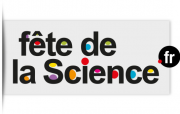
On the occasion of the general public event Artem fête la science on October 9 and 10 2015 in Nancy, that is the biggest « Fête de la science » event in Lorraine, Inria hold a demo stand for audio source separation.
The demo highlighted in particular deep neural network based separation algorithms applied to music.
Young Researcher Prize in Science and Music 2015
Science / Music day - Young Researcher Prize in Science and Music 2015, Rennes, Maison des associations, September 25, 2015
Invited talk by Jérôme Nika (Ircam / STMS).
Young Researcher Prize in Science and Music 2015,
decerned to Jérôme Nika by AFIM (French Association of Computer Music), INRIA (French Institute for Research in Computer Science and Automation), IRISA (Institute for Research in IT and Random Systems), Rennes 2 university and sponsored by Foundation Rennes 1.
(Other laureate: Jérémie Garcia, Ircam / STMS.)
Concert "Three Ladies" - "Pietre che cantano" festival 2015 , L'Aquila, Italy
"Edith Piaf, Elizabeth Schwarzkopf, Billie Holiday, tre donne del 1915", multimedia performance from and by Hervé Sellin and Georges Bloch, Festival interazionale "pietre che cantano", L'Aquila, Italy, August 21, 2015 .
Hervé Sellin (piano) and Georges Bloch (using ImproteK) intensively worked with the system for 6 months, from the beginning of their project to the first concert in August 2015. This collaboration led to two concerts (August 21st 2015, Festival Internazionale “Pietre che cantano", L’Aquila, Italy; February 6th 2016, Conservatoire du sixième arrondissement, Paris, France) and studio sessions to record the pieces. The idea of their project “Three Ladies” was to create two improvised pieces played by Hervé Sellin and a virtual trio: Edith Piaf, Billie Holiday, and Elizabeth Schwarzkopf.
Video: Studio session "The Man I Love"
Video: Interviews with Hervé Sellin (in french)
Workshop "Musician and machine", Montreux Jazz festival 2015
Presented by Gerard Assayag (Ircam / STMS), Rémi Fox (saxophonist, nOx) and Jérôme Nika (Ircam / STMS).
Announce of the workshop: "Artistic creativity seems to be the prerogative of humans; in particular those who express themselves through the act of composition or musical improve. However algorithms have long been capable of generativity and have been used by musicians in computer-assisted composition environments or in improvised interaction, such as the OMax software program developed by IRCAM. These digital agents also show a capacity for a type of computational “creativity” (machine musicianship), creating unique playing situations for musicians who like having partners that are both fanciful and strict, capable of learning in real-time, of mimicry, and of inspiring variations.
IRCAM and several partners (including EHESS, UBO, Inria, and EPFL), and in interaction with the Montreaux Festival, is carrying out the DYC12 project (Dynamiques créatives de l'interaction improvisée) with support from the French National Research Agency, making it possible to explore these ideas with current music, but also in a renewed and creative relationship with audiovisual archives - in particular those from the Festival.
The workshop included an explanation and live demo of these ideas with artists."
Video: Studio session "Rent Party"
Videos: Studios sessions "Generative improvisation" #1 - #2 - #3
Videos: Interviews with Rémi Fox About "Rent Party" - About "Generative Improvisation"
Videos: Montreux Jazz Festival 2015 Workshop OMax performance par RepMus
Videos: Montreux Jazz Festival 2015 Workshop Archive Video Improvisation par RepMus
Journées Portes ouvertes de l'Ircam en juin 2015
A quelques pas du Centre Pompidou, l'IRCAM (l’Institut de Recherche et Coordination Acoustique et Musique) proposait, samedi 6 juin, ses portes ouvertes dans le cadre du Festival ManiFeste. Les visiteurs pouvaient expérimenter des jeux musicaux collectifs avec des smartphones, tester un karaoké inversé, improviser sur une guitare augmentée et pour les plus sportifs, s’essayer au ping-pong musical.Particulièrement remarqués, deux nouveaux dispositifs d'augmentation de la guitare, l'un d'accompagnement automatique et interactif issu du projet ANR DYCI2, l'autre de transformation du son des guitares acoustiques sans haut-parleur grâce au contrôle actif des vibrations.
Science & You 2015
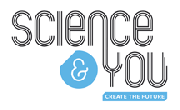
On the occasion of the general public event Science & You from June 3 to 6 juin 2015 in Nancy, K. Déguernel and E. Vincent (Inria Nancy) held a demo stand of OMax.
The demo highlighted the current features of OMax and improvements that are the subject of DYCI2.
SiSEC 2015
Inria participed in the fifth community-based Signal Separation Evaluation Campaign (SiSEC 2015) (deadline: May 25 2015) by submitting its deep neural network based source separation system on the Professionally-produced music recordings task. This task consists of separating 50 full popular music recordings in different styles into 4 tracks (singing voice, percussion, bass, other instruments) without any prior information. The training corpus involves 50 other recordings. The results showed an improvement of the signal-to-distortion ratio by several decibels wrt the state of the art. Our system ranked 1st ex-aequo.
Seminar "Complex Systems in Social Sciences"
Invited talk by Jérôme Nika (Ircam / EHESS), EHESS, Paris, April 3, 2015
"Modèle pour l'improvisation musicale homme-machine guidée par un scénario", Seminar Complex systems in social sciences, Cams (Center of Analysis and Social Mathematics), EHESS (School for Advanced Studies in Social Sciences), Paris, April 3, 2015.
International Jazz Day 2015
A l’occasion de l’International Jazz Day, Carte blanche à la Montreux Jazz Artists Foundation au Centre Culturel Suisse à Paris le 30 avril 2015.
Jerry Léonide Quintet + guest Paul Plexi
Directrice artistique : Stéphanie-Aloysia Moretti (MJAF), Technique EPFL.
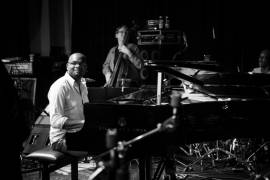
Le pianiste mauricien Jerry Léonide a été lauréat 2013 de la Parmigiani Montreux Jazz Solo Piano Competition. Concert en quintet à l’occasion de la sortie de son dernier opus The Key, chez Act. Cet album est le résultat d'un mélange subtile entre le jazz et les rythmes de l’île Maurice pour donner une musique chaloupée tout en laissant une grande place à l'expression et à l'improvisation. La richesse de son univers musical alliée à sa technique et sa maîtrise du jazz moderne fait de Jerry l'un des pianistes les plus créatifs et originaux de sa génération.
En introduction du concert, Jerry Léonide se prête à une performance imaginée par Le Montreux Jazz Festival et l'Ecole polytechique fédérale de Lausanne, partenaires du projet DYCI2 : un "Steal the Show". Le pianiste rejoue quelques extraits en live du concert de Monty Alexander en 1976, au Montreux Jazz Festival, projeté simultanément. Cette expérience prélude à l'interaction généralisée et automatisée des musiciens avec les archives proposée par DYCI2.
Mathemusical Conversations 2015
Conference - Plenary session Creative Dynamics of Improvised Musical Interaction par Gerard Assayag (Ircam / STMS)
Plenary Session 2, Mathemusical Creativity, Chair: Gerard Assayag (Ircam / STMS); Speakers: Gerard Assayag, Jean-Pierre Bourguignon (Head European Research Council), Margaret Boden (U. of Sussex)
Mathemusical Conversations: mathematics and computation in performance and composition is an international workshop jointly hosted by the Yong Siew Toh Conservatory of Music and the Institute for Mathematical Sciences at National University of Singapore (NUS), organised in collaboration with the Centre for Digital Music, Queen Mary University of London and the Sciences and Technologies for Music and Sound Research Lab, Institut de Recherche et Coordination Acoustique/Musique, and in partnership with Raffles Institution.
Concert-conference "Brunch Ethnomusika"
Brunch Ethnomusika, public concert-conference, Péniche Anako, quai de Seine, Paris, February 8, 2015
"Marovany zither, rhythm, variations, and computer modeling using the software ImproteK" Concert-conference, presentation by M. Chemillier (EHESS) and demonstration / performance by M. Chemillier (EHESS) and J. Nika (Ircam /STMS).
Read more (french) …
Hide …
Brunch Ethnumusika : "Un dimanche par mois (11h-14h) sur la Péniche Anako, face au 61 Quai de Seine, Paris 19°. Depuis mars 2010, le Brunch ethnomusiKa met à l’honneur les musiques et les danses du monde, avec comme particularité d’associer les pratiques musicales et dansées aux discours de chercheurs, musiciens, danseurs, enseignants, acteurs culturels, qui présentent ces pratiques, les contextualisent et transmettent les savoirs qui y sont associés : conférences illustrées par des démonstrations instrumentales, chantées ou dansées, concerts, projections de films sont autant de formats qui sont explorés, en accordant une place importante à l’interaction avec le public. En mettant en évidence des manières d’écouter, de jouer, de penser les musiques et les danses à travers le monde, les intervenants donnent ainsi accès à des facettes peu connues de ces patrimoines."
"Unexpected workshops" - "Mons capitale de la culture 2015"
"Unexpected workshops": traveling school, workshops, discussions, performances, Lille (France), Mons / Tournai (Belgium), 2015
M. Chemillier (EHESS) and J. Nika (Ircam / STMS) took part in the organization and animation of the "Unexpected workshops music / philosophy" ("Rencontres inattendues musique et philosophie") organized by philosopher Bernard Stiegler and IRI (Institut de Recherche et d’Innovation) in the framework of the project “Mons capitale de la culture 2015”. This project addressed the questions of improvisation and annotation / categorization in music and philosophy.
ImproteK played an important role in the “Ateliers Inatendus” (“Unexpected Workshops”): from October 2014 to August 2015, a “traveling school” was organized between Belgium and France with workshops in Mons, Lille, and Tournai, attended by numerous amateur and professional musicians. The workshops associated sessions of collective musical practice orchestrated by Bernard Lubat, Fabrice Vieira and guests (such as Michel Portal), and sessions of collective discussions with interventions of philosophers and musicologists and ethnomusicologists (such as Bernard Stiegler, Jean During, Pierre Sauvanet and Yves Citton). This project ended with a summer school in Tournai during Tournai Jazz Festival 2015.
The scenography of the successive workshops was centered on a visual representation of ImproteK inputs and outputs displayed on a screen in the middle of the stage destined both to the musicians and to the audience. The system was integrated in a network of devices introducing new interactive practices for the musicians and enabling the audience to take part in an active listening process through annotations of the improvisations.
Lorentz Center Workshop 2015
Conférence invitée Improvised Interaction, a Creative Pespective on Similarity par Gérard Assayag (Ircam / STMS) Workshop on Music Similarity: Concepts, Cognition and Computation, Jan 19-23 2015
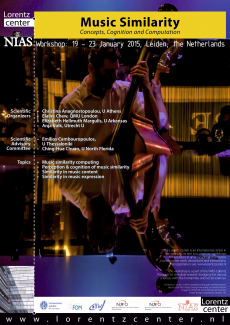
The aim of this workshop is to bring together experts on music similarity from Computer Science and the Musical Sciences in order to discuss overarching and cross-disciplinary strategies on the theoretical and computational modeling of music similarity. Specifically, participants of the workshop are going to develop a roadmap document on music similarity research, providing an overview of achievements, current challenges, future short and long term goals on modeling music similarity.
Abu Dhabi Rhythm International Workshop 2014
Cross-disciplinary and Multi-cultural Perspectives on Musical Rhythm II, New York University @ Abu Dhabi, October 12-15, 2014
Invited talks by Gérard Assayag (Ircam / STMS) , Jérôme Nika (Ircam / STMS), Marc Chemillier (EHESS)
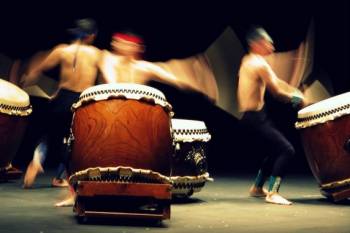
A collaboration between NYU's campuses in Abu Dhabi and New York holds the second international research workshop on the cross-disciplinary and multi-cultural aspects of musical rhythm. The workshop gathers 25 leading world scholars to discuss their research, as well as investigate musical rhythm and improvisation in non-western music from a variety of academic standpoints.
Cross Cultural Live Performance featuring the Ircam OMax software
Musical Diversity in Concert II, Sunday, October 12, 2014 (concert video)
This concert features the rhythmic styles of musicians from different regions of the world, including India, Ghana, France, the UK, Peru, and the US. Equally diverse, the instruments represented range from traditional African drums, to saxophone, to cutting-edge, computer-generated music.
ICMC / SMC 2014, Key Note
Creative Symbolic Interaction Keynote by Gérard Assayag (Ircam / STMS), September 17, 2014.
The joint ICMC|SMC|2014 Conference took place in Athens, Greece, from 14 to 20 September 2014 and, for the first time brought together two well established events: the 40th International Computer Music Conference (ICMC) joint with the 11th Sound & Music Computing conference (SMC).
